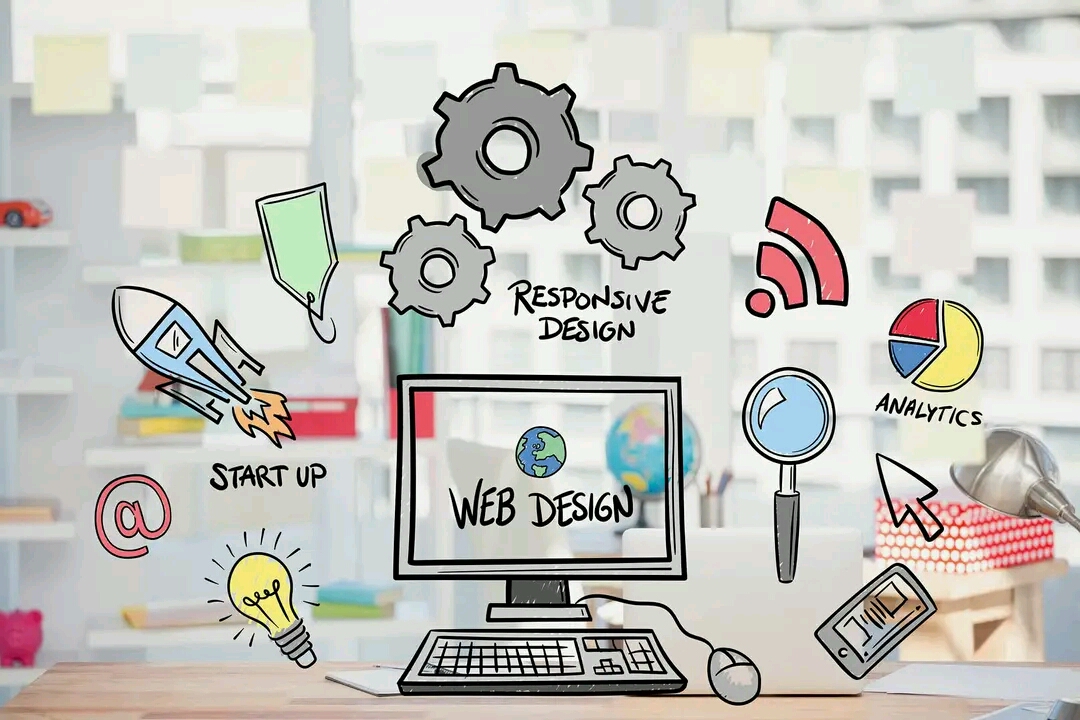Types of Websites And Elements of Effective Websites

Types of Websites And Elements of Effective Websites
Why do you need a website? In today’s world, consumers are more and more likely to expect a company to have their own website. In the eyes of a consumer, having a website is a measure of viability, of stability.
For the most part most businesses today realize the importance of having an online presence – whether that be through a website, or on the social media platform a Facebook page, or a Twitter profile, etc. If your business does not have an online presence, the chances are you could be losing valuable business and customers to your competitors who do have effective and active online presences. An effective website adds credibility to your company or organization. Beyond the importance of simply having a website though, it is important to have an effective website, one that is an asset to your business and that pays for itself in the amount of business or customers it converts.

Today I want to talk about a few of the features, types of websites and elements that help make a website effective.
Types of Websites And Elements of Effective Websites
Navigation
The organization and navigation scheme of your website can ultimately be the difference between visitors staying on your site and visitors leaving to go to your competitor’s site. It is extremely important that the navigation of a website makes it easy for visitors to find what they came for in as few clicks and with as little confusion as possible. Taking the time to make sure your website’s navigation is up to par is a huge step towards building an effective website.
Aesthetic / Cosmetic Appeal
Another extremely important feature of an effective website is its aesthetic appeal. If your site is too distracting and busy, it will detract from the appeal and usability of the overall site, potentially limiting its effectiveness if you start to lose visitors due to the poor design. On the other hand, if a website is too plain and looks like it was designed 10 years ago and hasn’t been updated, you also risk losing or disappointing website visitors and potential customers. A well-designed and aesthetically appealing website can give you a strong advantage over other online competitors.
A Strong Clear message
An effective website is clear on the message it is trying to send visitors. It should be fairly obvious what the purpose of the site is, why you should be here, who the company is that this site represents, and how this company can benefit its customers.
Intuitive Turn-key Design
One of the most important elements of a highly effective website is its intuitiveness. By this I mean that each page should be designed with the customer of visitor in mind and tailored to appeal to them and make it easy for them to navigate and find what they need. A good example of this is a Related Products feed or Other Products You Might Be Interested In feed on an e-commerce website. An intuitive website shouldn’t have “dead-end pages” which leaves a visitor with nowhere to go but back. An intuitive website seems to know what website visitors are looking for and where they want to go and is one of the most effective ways that a website can turn visitors into customers.
So there you have it, four of the most important elements of a highly effective website for your business. Take a moment and look over your existing website and see how it is doing. Is it as effective as it could be? Where could it be better? Investing in your website to make it as effective as it can be could be the difference between having a website like everyone else and having a website that will help build and grow your business and customer base.

Types of Websites
Customer Relationship Management
Customer relationship management (CRM) is a widely implemented model for managing a company’s interactions with customers, clients, and sales prospects. It involves using technology to organize, automate, and synchronize business processes—principally sales activities, but also those for marketing, customer service, and technical support.
The overall goals are to find, attract, and win new clients; nurture and retain those the company already has; entice former clients back into the fold; and reduce the costs of marketing and client service.
Customer relationship management describes a company-wide business strategy including customer-interface departments as well as other departments.
Measuring and valuing customer relationships is critical to implementing this strategy.
Content Management System
A content management system (CMS) is a bundled or stand-alone application used to create, manage, store, and deploy content on Web pages. Web content includes text and embedded graphics, photos, video, audio, and code (e.g., for applications) that renders other content or interacts with the user. A CMS may also catalog or index content, select or assemble content at runtime, or deliver content to specific visitors in a personalized way, such as in different languages.
E-Commerce
Electronic commerce, commonly known as e-commerce or e-comm, refers to the buying and selling of products or services over electronic systems such as the Internet and other computer networks.
Electronic commerce draws on such technologies as electronic funds transfer, supply chain management, Internet marketing, online transaction processing, electronic data interchange (EDI), inventory management systems, and automated data collection systems.
Modern electronic commerce typically uses the World Wide Web at least at one point in the transaction’s life-cycle, although it may encompass a wider range of technologies such as e-mail, mobile devices and telephones as well.
Blog/Forum Websites:
Blogging is the newest sensation to hit the Internet in the past few years. If you want to voice your opinion and meet people with common views then Blogging is the way to go.
Blogs (or Web Logs) can be categorized as online journals or editorials that give regular people the power to tell the world what is on their mind – whether it be their view on a political issue or what they had for lunch. There are many free Blogging sites out there, but Blogger by Google is probably the most popular, as of now.
With Blogger you can create an account and Blogging page for free and post as many times a day as you want. Maintenance for these sites depend on how big of a “Blogger” people are.
Some people may post a blog once a day or a couple times a week while others will continuously post on their blog throughout the entire day with help from cell phones and PDA’s.
SEE ALSO : Benefits of A Website to Your Businesses
Hope you found this article on Types of Websites And Elements of Effective Websites informing and helpful?
Comments are closed.